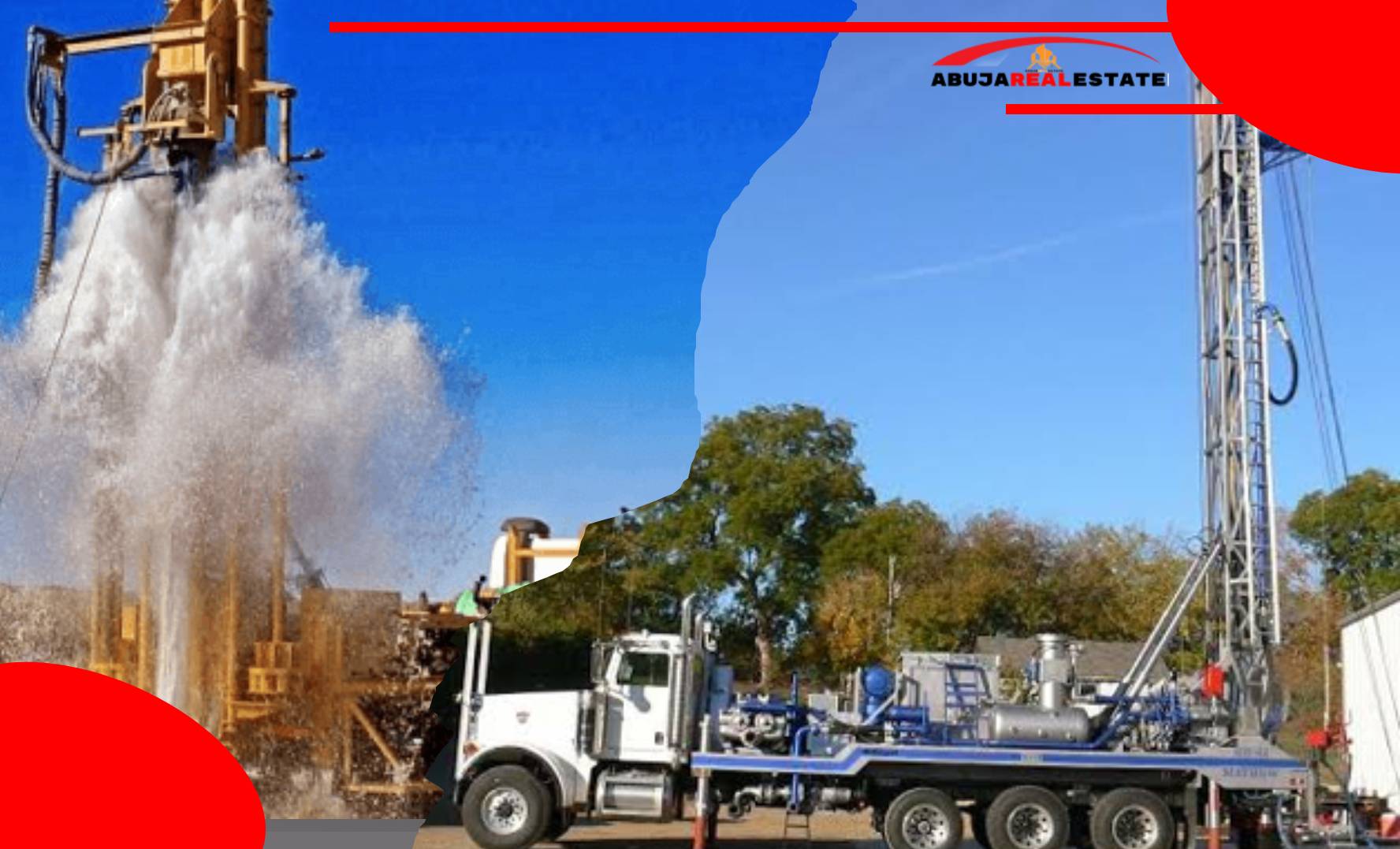Cost of Borehole Drilling in Nigeria, Prices, Factors, and Tips

Water is life — and in Nigeria, where public water supply is often unreliable, drilling a borehole has become one of the most practical ways to get clean water for homes, farms, or businesses. However, before you start, it’s crucial to understand the cost of borehole drilling in Nigeria and the factors that influence it.
This guide breaks down everything you need to know about borehole prices, drilling types, cost per location, and helpful tips to ensure you get the best value for your money.
What Is a Borehole?
A borehole is a deep, narrow well drilled into the ground to access underground water. Boreholes provide clean, safe water for domestic, commercial, or agricultural use. In Nigeria, two main types of boreholes are common:
- Manual Borehole (Hand Drilling):
- Cheaper but suitable for shallow depths (up to 30 meters).
- Ideal for areas with soft soil.
- Machine Drilled Borehole (Industrial Drilling):
- Uses heavy-duty drilling rigs.
- Can reach deep aquifers (up to 200 meters or more).
- More expensive but offers better water quality and longevity.
Average Cost of Borehole Drilling in Nigeria (2025 Update)
The cost of borehole drilling in Nigeria varies depending on several factors such as location, soil type, and drilling method. However, as of 2025, here’s an estimated price range:
| Type of Borehole | Depth | Estimated Cost (₦) |
| Manual Drilling | 10 – 30 meters | ₦150,000 – ₦350,000 |
| Machine Drilling (Residential) | 30 – 60 meters | ₦500,000 – ₦1,000,000 |
| Machine Drilling (Commercial) | 60 – 150 meters | ₦1,000,000 – ₦3,000,000+ |
| Industrial/Deep Borehole | 150 meters and above | ₦3,000,000 – ₦6,000,000+ |
These figures are just estimates — actual prices will depend on your location and the contractor you choose.
Borehole Drilling Cost by Location in Nigeria
Prices differ across Nigerian states due to variations in soil type, accessibility, and water depth:
- Lagos & Ogun State: ₦800,000 – ₦2,000,000
- Abuja (FCT): ₦1,000,000 – ₦2,500,000
- Port Harcourt & Bayelsa: ₦900,000 – ₦2,000,000
- Kaduna & Kano: ₦600,000 – ₦1,500,000
- Enugu & Anambra: ₦500,000 – ₦1,200,000
- Benue & Nasarawa: ₦400,000 – ₦1,000,000
- Rural Areas: ₦250,000 – ₦800,000 (depending on accessibility)
Factors That Affect the Cost of Borehole Drilling in Nigeria
- Soil Composition:
Hard rock or clay soil requires more effort and equipment, increasing the total cost. - Depth of Water Table:
The deeper the aquifer, the higher the drilling cost. - Drilling Method Used:
Manual drilling is cheaper but limited, while machine drilling provides a more permanent water source. - Location and Accessibility:
Remote or difficult-to-reach areas increase transportation and labor costs. - Pump Type and Accessories:
Submersible pumps, overhead tanks, and piping add to total installation costs. - Water Quality Testing and Treatment:
In areas with iron or contaminated water, extra treatment systems may be required.
Steps Involved in Borehole Drilling
- Site Survey and Geophysical Test: Determines the best spot and depth for drilling.
- Drilling Process: Machines or manual tools bore into the ground to reach water.
- Casing and Installation: Pipes are inserted to protect the borehole walls.
- Pump Installation: Submersible or surface pumps are fitted.
- Water Quality Testing: Ensures the water is safe for consumption.
Tips for Reducing Borehole Drilling Costs
- Compare multiple quotes before choosing a contractor.
- Use local drilling companies to reduce transportation expenses.
- Choose the right drilling type based on your water needs.
- Negotiate reasonably — many contractors are flexible depending on distance and materials.
- Invest in good-quality equipment to avoid future repairs.
Common Mistakes to Avoid When Drilling a Borehole
- Hiring unqualified or uncertified contractors.
- Skipping geophysical surveys before drilling.
- Using low-quality pumps or materials.
- Ignoring maintenance after installation.
Avoiding these mistakes saves you money and ensures your borehole lasts for years.
Frequently Asked Questions (FAQs)
1. What is the average cost of borehole drilling in Nigeria?
It ranges from ₦300,000 to ₦3,000,000, depending on the depth, soil type, and drilling method.
2. How long does it take to drill a borehole?
Typically between 1 to 3 days, though larger commercial boreholes may take up to a week.
3. Which is better: manual or machine drilling?
Machine drilling is more durable and provides better water quality, but it’s more expensive than manual drilling.
4. Can I install a borehole myself?
No, it’s best to hire professionals with the right equipment and technical experience.
5. Does location affect borehole cost?
Yes. Urban areas like Lagos and Abuja usually cost more than rural regions due to higher labor and logistics costs.
Conclusion
The cost of borehole drilling in Nigeria depends largely on your location, soil type, water depth, and contractor. While it can be a significant investment, having a reliable water source saves you from the constant struggle of buying water or relying on inconsistent public supply.
Before starting, do your research, get multiple quotes, and work only with reputable drilling experts. With the right planning, your borehole will serve you reliably for years to come.


